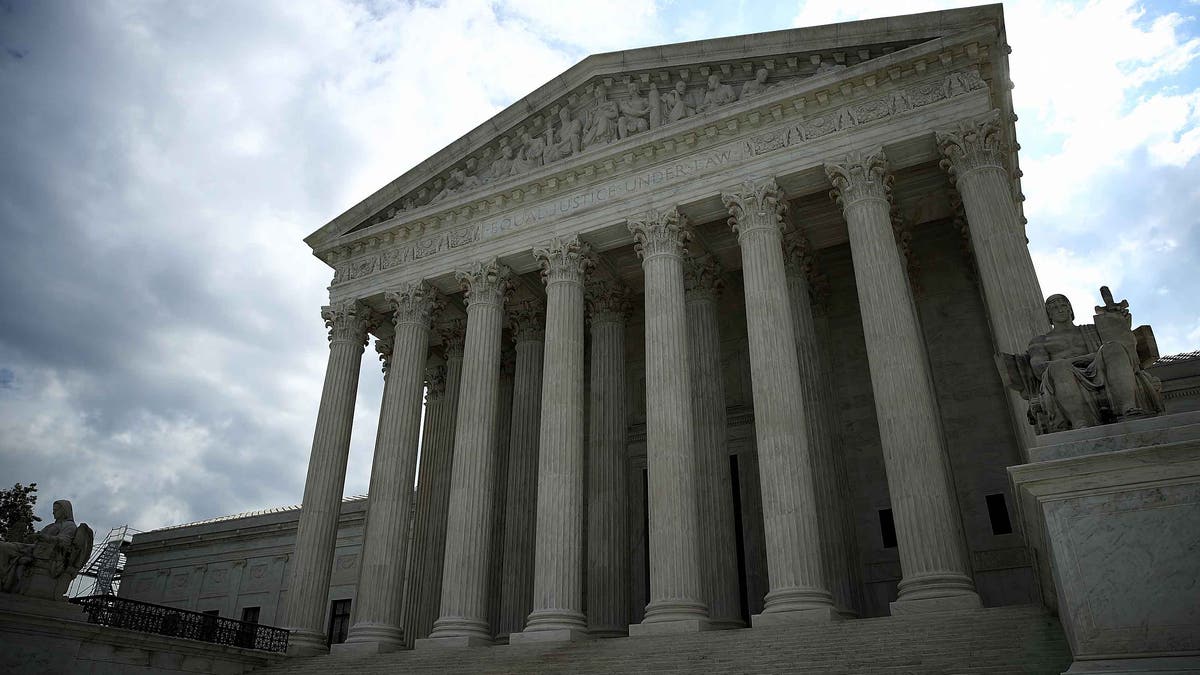
WASHINGTON, DC - MAY 23: The U.S. Supreme Court is shown as the court meets to issue decisions May 23, 2016 in Washington, DC. The court today sided in a 7-1 decision written by Chief Justice John Roberts with a Georgia inmate on death row in his appeal to the court citing efforts by prosecutors to exclude African Americans from a jury panel in the murder case. (Photo by Win McNamee/Getty Images) (2016 Getty Images)
Today, in a 4-4 tie, the Supreme Court contributed to Washington, D.C.’s dysfunction and gridlock.
The case under review, U.S. v. Texas, challenged President Obama’s 2014 policy proposals to temporarily protect from deportation up to 5 million undocumented individuals.
The Court’s non-decision is a heartbreak for millions of families, destabilizes untold numbers of businesses and wastes valuable law enforcement resources. But the lawyers for the state of Texas are happy because the litigation will continue — which means more billable hours sent to the taxpayers.
Deferred Action for Parents of Americans and Lawful Permanent Residents (DAPA) and the expansion of Deferred Action for Childhood Arrivals (DACA) would have allowed immigrants who qualified to emerge from the shadows and obtain work permits or continue their studies. Many of these people have made their lives here and have contributed richly to the country they, like we, call home.
Today’s decision, while disappointing, means only that a lower court’s injunction stands and that the president’s 2014 deferred-action policy proposals cannot yet be implemented. The decision does not affect the original DACA program from 2012, nor does it change the situation of those who have already benefited from it or who are eligible and have yet to take advantage of it.
- Divided families the legacy of surge in Cuban immigration to U.S.
- In 4-3 decision, Supreme Court upholds affirmative action program at University of Texas
- Pope says Mass at U.S.-Mexico border, honors migrants who’ve died crossing
- Obama, Dreamers call high court tie on immigration plan ‘heartbreaking,’ ‘devastating’
- Best pix of the week
- Dreamers are saddened but defiant following Supreme Court immigration ruling
- Supreme Court blocks Obama immigration plan with 4-4 vote
The original program was not challenged in the lawsuit.
But the millions who would benefit from additional deferred action now must wait for further court rulings. They remain in limbo.
So do their communities and a country that have waited too long for real solutions on immigration.
We remain optimistic. Poll after poll shows widespread support for a better immigration process — and, indeed, for creating a path forward for exactly those people whom the executive actions would benefit. Just today, the Public Religion Research Institute announced findings that 61 percent of Americans support a way for such people to come forward and meet certain requirements in order to earn eventual citizenship.
On the flip side, those same polls also show widespread rejection of the most outlandish, inhumane and costly proposals, such as the round-up and deportation of 11 million people. They are unrealistic. They are impractical. They are not who we are as a nation.
Some Republican members of Congress recognize the choice before them: Nine of them responded to today’s ruling by saying, “The Supreme Court has spoken, but today's decision does not resolve the issue. The American people expect Congress to work together to secure our borders, adhere to the rule of law, offer a humane solution to those living in the shadows, modernize our visa system and bolster the economy."
They went on, “We are committed to fixing our broken immigration system once and for all.”
So let’s rally the troops, let’s register to vote and, this November, let’s let Congress know what America knows: They must act.
The vast majority of us across the political spectrum support immigrants and immigration and know its benefits. The vast majority of us have immigrants in our inner circles – as co-workers, as neighbors in our church pews and, in many cases, as members of our own families.
The vast majority of us need to vote.
Ultimately, our victory lies in the will of the people, carried out through congressional action.
